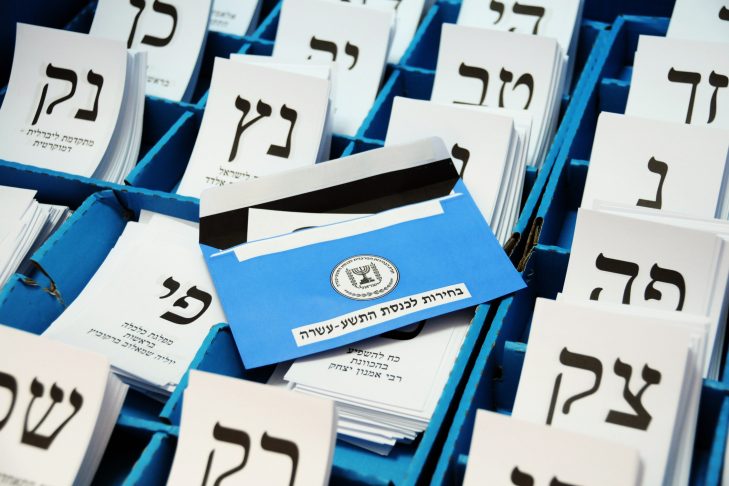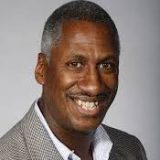The synagogue I attend has a vision, “All paths lead to shalom.” I know what that means for internal and community peace, but what does it mean for Israel and the world? To answer that question, I recently joined a group from Temple Beth Elohim in Wellesley, Massachusetts, to visit Or Hadash, a Reform congregation in Haifa. As sister congregations, we support and learn from each other as we try to live our values.
During my stay in Israel, the election returns came in, and I witnessed Jews and Palestinians alike expressing fear of what the incoming government would bring. I realized there are many different understandings of what it means to be Jewish, democratic and Zionist in Israel.
Often, we find it easier to articulate what we’re against rather than what we are for. For example, we might oppose a type of Judaism that is perceived as condoning racism, misogyny and is homophobic. Similarly, rather than understanding Zionism in its historic context or in its many varieties, including religious, socialist, cultural, and political, many people view Zionism as binary: Either you are Zionist and a friend of Israel or anti-Zionist and an enemy, even antisemitic. There is a real need to define and demonstrate a Zionism that can be embraced by Jewish and non-Jewish communities. Or Hadash is working to create a living example of such Zionism.
Or Hadash has a vision that could bring shalom to a place that urgently needs peace. The synagogue promotes an inclusive, inspiring, pioneering, egalitarian, pluralistic and liberal Judaism, actively and proudly practiced in the public sphere. Reflecting these values, a male rabbi, Gabby Dagan, and a female rabbi, Na’ama Dafni Kellen, co-lead the congregation. They demonstrate that Or Hadash is a community where people can put their values into action, as a community. It is an approach that many Conservative, Reform and secular Jews will find attractive. To me, it represents Jewish worship at its best, where traditional and progressive music and liturgy combine with the Jewish value of tikkun olam, healing the world.
The people of Or Hadash are working toward an Israeli state that reflects their interpretation of what it means to be democratic: respecting the rights of minority groups, non-Jews, LGBTQ+ people, women, non-Orthodox Jews, and other marginalized groups. To advance this vision, they created the Center for Community Activism, which encourages and organizes members and neighbors to translate their values into action. They have also formed interfaith partnerships with Muslims and Christians, and they work with feminist and LGBTQ+ organizations on grassroots initiatives.
Or Hadash aspires to make Israel a true spiritual home for all Jews from all denominations, all over the world, in conjunction with the Law of Return. To achieve this, the synagogue is developing a Jewish sense of peoplehood for its congregants, offering friendly conversion classes—even though non-Orthodox conversions are not currently recognized by the state—and performing over 150 life cycle ceremonies yearly, exposing Israelis to a beautiful and egalitarian Judaism. Or Hadash is committed to helping congregants form meaningful connections among themselves and with others outside the congregation.
Additionally, Or Hadash is working toward a healthier ecosystem for future generations by transforming itself into a sustainable synagogue featuring solar panels, a community garden, and zero disposables. The congregation has also started a training center for urban sustainability to encourage Haifa residents to embrace sustainable choices and lifestyles, and it leads the Israeli Reform initiative for “social and green kashrut.”
During my stay in Israel, I also attended Shabbat services at Havurat Tel Aviv, which is part of the havurah movement, an alternative Jewish community focused on building a community rather than an institution. Another congregation in the movement, Havurat Shalom in Somerville, Massachusetts, describes itself as “a lay-led congregation where people pray, celebrate, and grapple with Jewish texts and traditions and work for social justice.” Havurat Shalom welcomes “people of all colors, ethnic backgrounds, genders and sexualities” and “invites singles and families of all configurations, including interfaith families and people who are exploring Judaism.”
While studying Havurat Tel Aviv, I learned about the Masorti Foundation for Conservative Judaism, which works to ensure a pluralistic, egalitarian, and fully democratic Israel. The Masorti Movement values inclusion along with traditional practice and halakha (Jewish law), and it creates opportunities for all Jews to live Jewish lives in Israel unhindered and on their own terms. To that end, the movement advocates for equal recognition from the Israeli government for all Jews, no matter how they converted or where they fall on the spectrum of Jewish observance. Masorti is creating real societal change throughout the country.
Or Hadash and Havurat Tel Aviv aspire to the values Rabbi Heschel communicated. Both congregations live a type of Judaism that would appeal to a wide range of Jews, if they knew about it. They model an alternative vision of Jewish values, Zionism, and what it means to be democratic.
In a 2018 poll, 13% of Israeli Jews surveyed said if given a choice, they would identify as Conservative or Reform. Extrapolated to Israel’s entire population, that would mean 800,000 people. However, only about 20,000 are currently part of the Reform movement.
Movements such as Reform, havurah and Masorti are alternatives that let Jews identify with their faith in a meaningful way. These and similar groups provide Jews around the world with partnership opportunities to help transform Israel into the type of state it aspired to be when created—a light unto the nations—and its population into people who express God’s justice and lovingkindness.
While many political avenues support these objectives, these movements provide an opportunity to express traditional Jewish values such as justice and making the world a better place in a religious context. They are grass shoots along a path to shalom in Israel. With Adonai’s blessing and support, let’s pray it comes to be.
Oseh shalom bimromav hu ya’aseh shalom aleynu ve’al kol Yisrael. Ve’imru Amen.
“May he who makes peace in the heavens grant peace to us and to all Israel. And let us say amen.”
Consider supporting Or Hadash with a donation to Temple Beth Elohim’s Israel Connection fund.
This post has been contributed by a third party. The opinions, facts and any media content are presented solely by the author, and JewishBoston assumes no responsibility for them. Want to add your voice to the conversation? Publish your own post here. MORE



